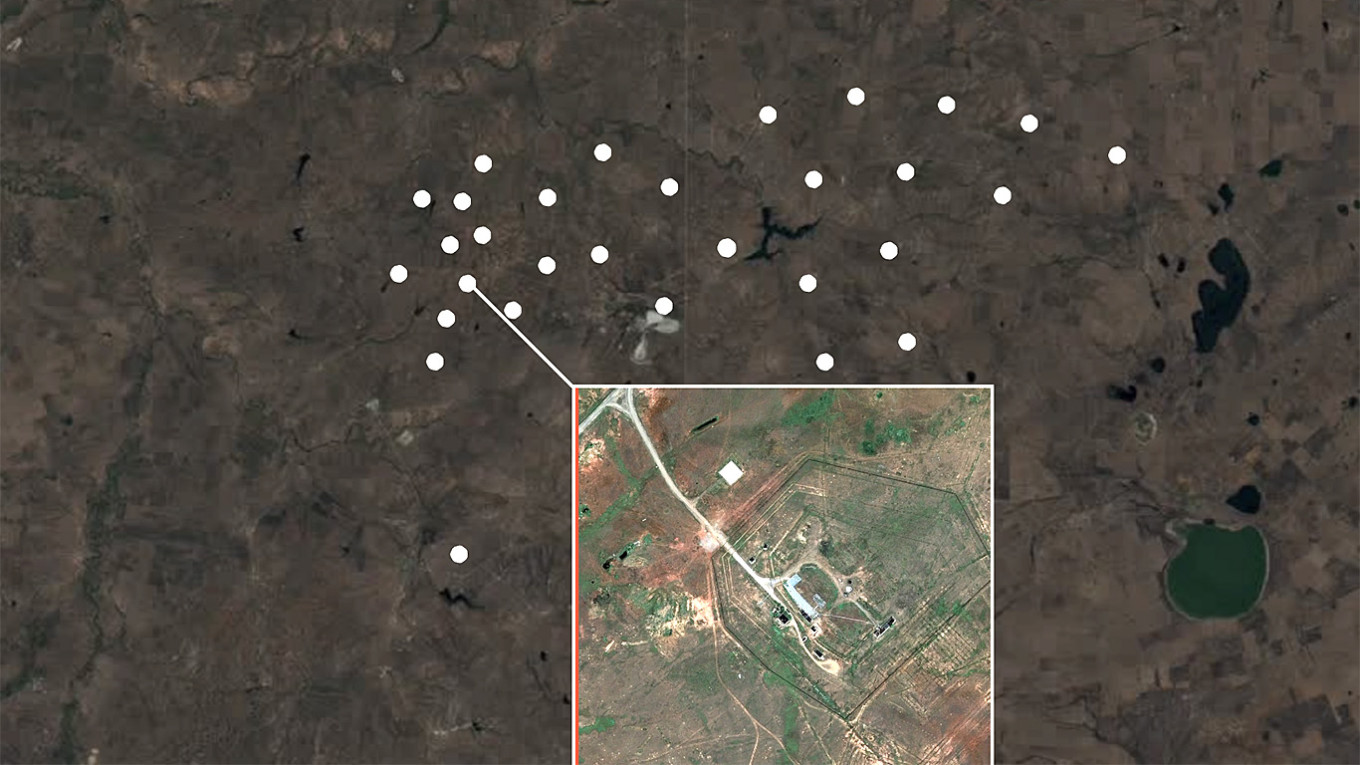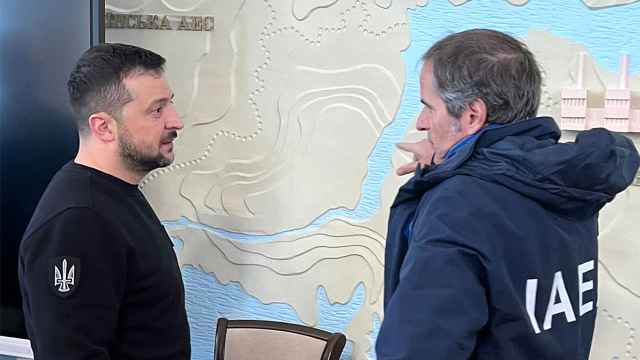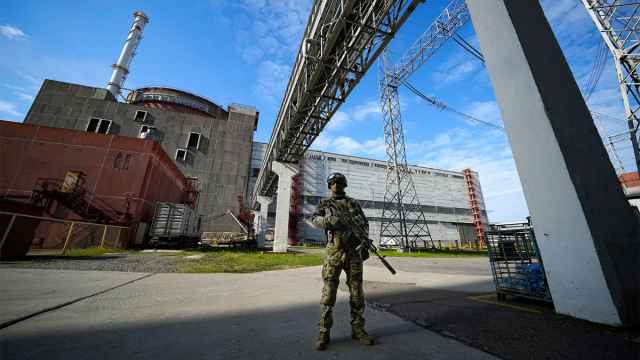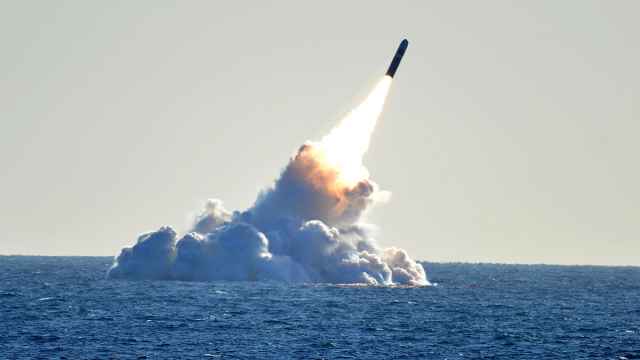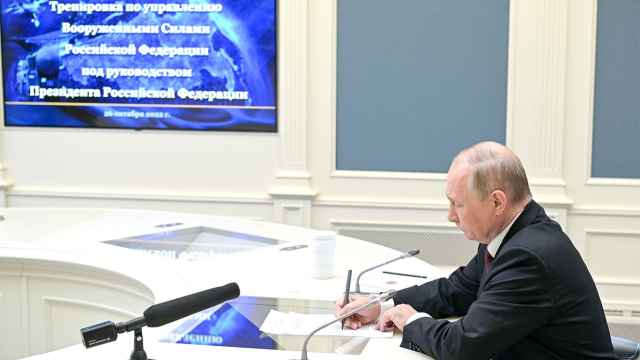A massive tranche of over 2 million documents found in a public database sheds light on Russia’s expansion and modernization of its highly sensitive nuclear weapons complex, the Danish investigative outlet Danwatch and Germany’s Der Spiegel reported Wednesday.
The files include detailed blueprints of the Strategic Missile Forces bases near the Orenburg region town of Yasny. The two bases are equipped with the Avangard hypersonic glide vehicle, one of Russia’s most advanced nuclear delivery systems.
“Until now, we have only been able to monitor these bases from above using satellite imagery,” Hans M. Kristensen, director of the Nuclear Information Project at the Federation of American Scientists, told Danwatch and Der Spiegel. “Now, with the help of these unique drawings, we can now for the first time get inside the buildings and all the way underground. It’s completely unprecedented.”
According to Danwatch and Der Spiegel, the documents show how numerous nuclear facilities were torn down and rebuilt with upgraded infrastructure over the past decade, including hundreds of new barracks, control centers, watchtowers and underground tunnels connecting buildings on the bases.
Among the leaked materials are construction plans, security system diagrams and details of wall signage inside the facilities, with messages like “Stop! Turn around! Forbidden zone!,” “The Military Oath” and “Rules for shoe care.”
Details extend to power grids, IT systems, alarm configurations, sensor placements and reinforced structures designed to withstand external threats. The documents even list recreational items for soldiers stationed there, including gym equipment and board games like chess and checkers.
“Material like this is the ultimate intelligence,” said Philip Ingram, a former colonel in the British Army’s intelligence corps. “If you can understand how the electricity is conducted or where the water comes from, and you can see how the different things are connected in the systems, then you can identify strengths and weaknesses and find a weak point to attack.”
Tom Røseth, a senior lecturer in intelligence studies at the Norwegian Defense Command and Staff College, said that understanding the scale and scope of Russia’s efforts to upgrade its nuclear facilities is in the public interest given the Kremlin’s repeated nuclear threats since its invasion of Ukraine.
“It’s important that we have a correct understanding of the situation, because there are still many who don’t fully recognize the situation Europe is in now, which is a fundamental shift in security policy,” Røseth said.
“Therefore it’s important to show that Russia has modernized its nuclear arsenal. They have, after all, threatened with nuclear weapons regularly during the Ukraine war. It has public relevance that Russia is capable — and it’s even more important because they have adjusted their nuclear doctrine and now have a lower threshold for the use of nuclear weapons,” he said.
Despite Russia tightening its military procurement rules and creating a closed procurement database accessible only to approved domestic contractors, defense construction officials have continued to attach sensitive documents to public tenders. Danwatch and Der Spiegel discovered sensitive blueprints attached to tenders as recently as mid-2024.
Russia’s Defense Ministry did not respond to Danwatch and Der Spiegel’s requests for comment.
A Message from The Moscow Times:
Dear readers,
We are facing unprecedented challenges. Russia's Prosecutor General's Office has designated The Moscow Times as an "undesirable" organization, criminalizing our work and putting our staff at risk of prosecution. This follows our earlier unjust labeling as a "foreign agent."
These actions are direct attempts to silence independent journalism in Russia. The authorities claim our work "discredits the decisions of the Russian leadership." We see things differently: we strive to provide accurate, unbiased reporting on Russia.
We, the journalists of The Moscow Times, refuse to be silenced. But to continue our work, we need your help.
Your support, no matter how small, makes a world of difference. If you can, please support us monthly starting from just $2. It's quick to set up, and every contribution makes a significant impact.
By supporting The Moscow Times, you're defending open, independent journalism in the face of repression. Thank you for standing with us.
Remind me later.


